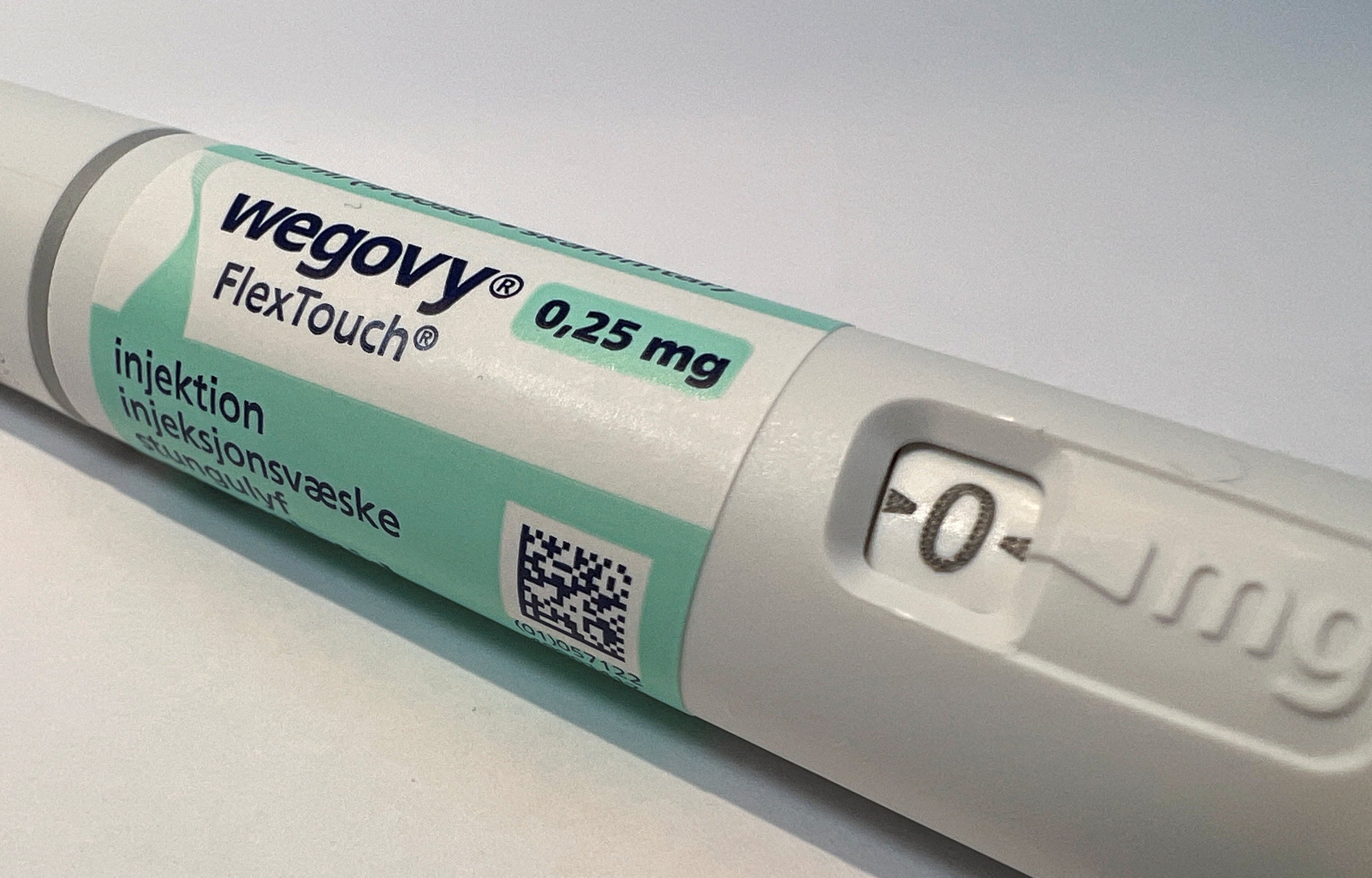Wegovy weight-loss jab 'significantly' improves blood sugar in diabetics
Hailed as potential ‘game changer’ in tackling obesity, Semaglutide can also help those with type 2 diabetes

Weight-loss jabs like Wegovy can “significantly” improve blood sugar control for diabetics, a study has found.
Semaglutide, sold under the brand names Wegovy, Ozempic and Rybelsus, has been hailed as a potential “game changer” in tackling obesity, but can also “significantly” help people with type 2 diabetes control their blood sugar for up to three years, researchers said.
They added that the effectiveness of a once-weekly dose of semaglutide to treat type 2 diabetes has been “demonstrated in randomised controlled trials”, but long-term data has “been lacking”.
According to Diabetes UK, 4.3 million in the UK are living with diagnosed diabetes, about 90 per cent of which are type 2.
According to NHS England, the health service spends about £10bn a year treating the condition, which is caused when the body has problems producing insulin.
A team from Maccabi Health Services retrospectively analysed data on the use of semaglutide in 200,000 patients from the Maccabi diabetes registry.
They found 23,442 eligible patients who used at least one prescription for semaglutide jabs between August 2019 and December 2022 and had one blood sugar control measurement (HbA1c) 12 months before and six months after starting treatment.
Before being prescribed semaglutide, 30 per cent of patients were treated with insulin and 31 per cent were treated with another drug from the weight-loss jab family, known as glucagon-like peptide-1 receptor agonists (GLP-1 RA).
Six months after starting on semaglutide, patients lowered their HbA1c by an average of 0.77 per cent (from 7.6 per cent to 6.8 per cent) and reduced their body weight by an average of 4.7 kg (from 94.1 kg to 89.7 kg).
The reduction in weight and blood sugar was more pronounced in those who had never taken semaglutide.
A follow-up after two years found HbA1c and body weight fell by an average of 0.76 per cent and 6.0kg respectively, while at three years they were down by 0.43 per cent and 5.8kg.
The National Institute for Health and Care Excellence (Nice) recommends the use of Ozempic to manage type 2 diabetes in England.
It also approved the use of Wegovy to aid weight-loss on the NHS in England earlier this year, with its guidance recommending it should be used for a maximum of two years.
Professor Avraham Karasik of the Institute of Research and Innovation at Maccabi Health Services in Israel led the study.
He said: “Our long-term analysis of semaglutide in a large and diverse cohort of patients with type 2 diabetes found a clinically relevant improvement in blood sugar control and weight loss after six months of treatment, comparable with that seen in randomised trials.
“Importantly, these effects were sustained for up to three years, supporting the use of once weekly semaglutide for the long-term management of type 2 diabetes.”
The findings were presented at the Annual Meeting of The European Association for the Study of Diabetes (EASD) in Hamburg.
The study was funded by Wegovy, Ozempic and Rybelsus manufacturer Novo Nordisk.
Prof Karasik added: “In this large real-world study, we were able to show durable reductions in HbA1c and body weight with emphasis on drug adherence.
“Data are in line with results in randomised controlled trials and show the long-term stable benefit of once weekly semaglutide.”
In August, Novo Nordisk published the findings of its own five-year study on Wegovy, known as the Select trial.
It found use of the drug can slash the risk of a heart attack or stroke in obese people by a fifth.
The study included 17,604 adults over the age of 45 from across 41 countries, each with a BMI of more than 27 and established cardiovascular disease, with no history of diabetes.
Wegovy officially launched in the UK last month and is prescribed to patients with a BMI of more than 30 – or 27 in the presence of other co-morbidities – via specialist NHS services.
About 50,000 eligible patients are expected to benefit.
The launch followed the announcement of a £40 million pilot by the Government in June to expand the use of weight-loss jabs in a bid to tackle obesity.
Prime minister Rishi Sunak said using the latest drugs to support people in losing weight “will be a game-changer”.
Subscribe to Independent Premium to bookmark this article
Want to bookmark your favourite articles and stories to read or reference later? Start your Independent Premium subscription today.

Join our commenting forum
Join thought-provoking conversations, follow other Independent readers and see their replies